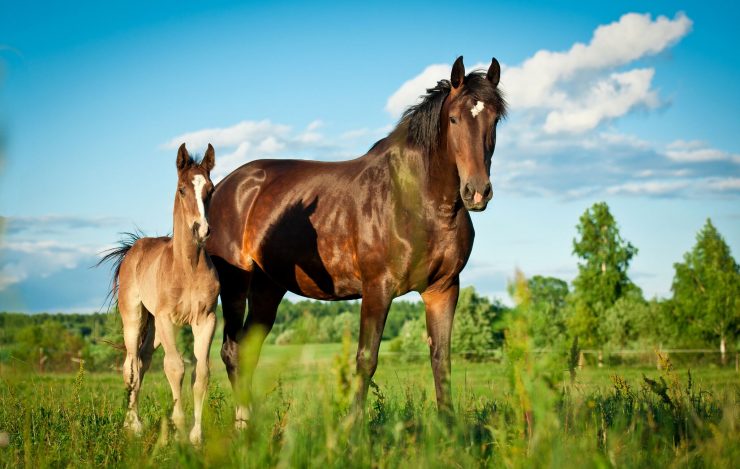 Maintaining gastric health is one of the most important actions you can take for your horse! Discomfort can negatively affect their overall attitude and performance. Knowing what signs to look for and how to manage symptoms can help keep your horse safe. Wondering how to do that? Read the details below provided from Purina!
Maintaining gastric health is one of the most important actions you can take for your horse! Discomfort can negatively affect their overall attitude and performance. Knowing what signs to look for and how to manage symptoms can help keep your horse safe. Wondering how to do that? Read the details below provided from Purina!
Causes of Gastric Discomfort:
It’s common for grazing animals to eat a forage-based diet throughout the course of the day. This slow intake naturally regulates the acidity inside the stomach. Additionally, the saliva produced buffers the acid. Also, when a horse is not constantly chewing, the acid builds up which causes severe discomfort. This can be from limited feeding times or absence of hay. Their Ph levels become out of sync.
Common Signs:
Understanding these common risk factors can put you in a better position to protect your horse. These are a few warning signs to look out for.
- Picky eating
- Weight loss
- Chronic diarrhea
- Poor coat condition
- Teeth grinding
- Changes in behavior, including aggression, nervous behaviors, side biting and “girthiness”
- Acute or recurring colic
- Poor performance
Management:
Taking the right steps to manage the potential for gastric discomfort will only benefit you and your horse.
- Recognize factors that could potentially contribute to discomfort.
- Seek help from a veterinarian if needed.
- Develop a program to minimize risk factors.
- Understand proper horse nutrition.
Maintaining gastric health is key to a happy and healthy horse. It may not seem easy, but don’t worry we have you covered! To read the entire article, see here.
Stop by North Fulton Feed & Seed to view our products designed to eliminate pain and provide the nutrients your horse needs for healthy development!
